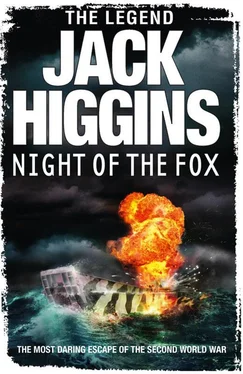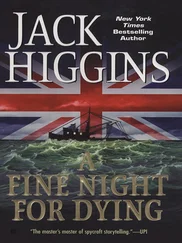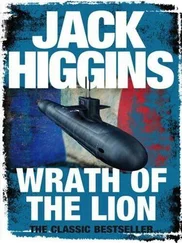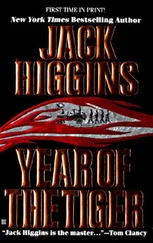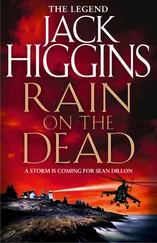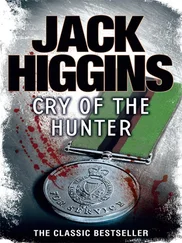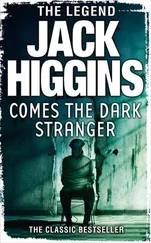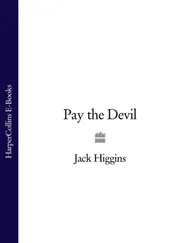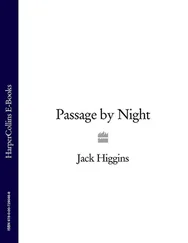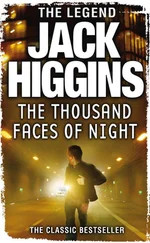‘No links with London at all,’ Gallagher told him.
‘Then what about France?’ Kelso asked desperately. ‘Granville, St Malo. They’re only a few hours away across the water, aren’t they? There must be a local unit of the French Resistance in those places.’
There was a significant pause, then Helen turned to Gallagher. ‘Savary could speak to the right people in Granville. He knows who they are and so do you.’
‘True.’
‘Guido was leaving as I came up from the beach,’ she said. ‘He told me they were trying for Granville this afternoon. Taking advantage of the fog.’ She glanced at her watch. ‘They won’t have the tide until noon. You could take the van. There are those sacks of potatoes to go into St Helier for the troops’ supply depot and the market.’
‘All right, you’ve convinced me,’ Gallagher said. ‘But if I know Savary, he won’t want any of this, not in his head. That means writing it down, which is taking one hell of a chance.’
‘We don’t have any choice, Sean,’ she said simply.
‘No, I suppose you’re right.’ Gallagher laughed. ‘The things I do for England. Look after our friend here. I’ll be back as soon as I can.’
As he reached the door she called, ‘And Sean?’
He turned. ‘Yes?’
‘Don’t forget to drive on the right-hand side of the road.’
It was an old joke, but not without a certain amount of truth. One of the first things the German forces had done on occupying Jersey was to change the traffic flow from the left- to the right-hand side of the road. After four years, Gallagher still couldn’t get used to it, not that he drove very often. They only had the old Ford van as a special dispensation because the de Ville farmlands supplied various crops for the use of the German forces. The size of the petrol ration meant the van could be used only two or three times a week anyway. Gallagher stretched it by coasting down the hills with the engine off, and there was always a little black-market petrol available if you knew the right people.
He drove down through the tiny picturesque town of St Aubin and followed the curve of the bay to Bel Royal, St Helier in the distance. He passed a number of gun emplacements with a few troops in evidence, but Victoria Avenue was deserted on the run into town. One of the French trains the Germans had brought over passed him on its way to Millbrook, the only sign of activity until he reached the Grand Hotel. He checked his watch. It was just before eleven. Plenty of time to catch Savary before the Victor Hugo left for Granville, so he turned left into Gloucester Street and made his way to the market.
There weren’t too many people about, mainly because of the weather. The scarlet and black Nazi flag with its swastika on the pole above the Town Hall entrance hung limply in the damp air. The German for Town Hall is Rathaus. It was, therefore, understandable that the place was now known as the Rat House by the local inhabitants.
He parked outside the market in Beresford Street. It was almost deserted, just a handful of shoppers and a sprinkling of German soldiers. The market itself was officially closed, open for only two hours on a Saturday afternoon. There would be enough people in evidence then, desperately hoping for fresh produce.
Gallagher got two sacks of potatoes from the van, kicked open the gate and went inside. Most of the stalls in the old Victorian Market were empty, but there were one or two people about. He made straight for a stall on the far side where a large genial man in heavy sweater and cloth cap was arranging turnips in neat rows under a sign D. Chevalier .
‘So, it’s swedes today?’ Gallagher said as he arrived.
‘Good for you, General,’ Chevalier said.
‘Do you tell me? Mrs Vibert gave me swede jam for breakfast the other day.’ Gallagher shuddered. ‘I can still taste it. Two sacks of spuds for you here.’
Chevalier’s eyes lit up. ‘I knew you wouldn’t let me down, General. Let’s have them in the back.’
Gallagher dragged them into the room at the rear, and Chevalier opened a cupboard and took out an old canvas duffel bag. ‘Four loaves of white bread.’
‘Jesus,’ Gallagher said. ‘Who did you kill to get those?’
‘A quarter pound of China tea and a leg of pork. Okay?’
‘Nice to do business with you,’ Gallagher told him. ‘See you next week.’
His next stop was at the troop supply depot in Wesley Street. It had originally been a garage and there were half-a-dozen trucks parked in there. There wasn’t much happening, but a burly Feldwebel called Klinger was sitting in the glass office eating a sandwich. He waved, opened the door and came down the steps.
‘Herr General,’ he said genially.
‘God, Hans, but you do well for youself,’ Gallagher said in excellent German and prodded the ample stomach.
Klinger smiled. ‘A man must live. We are both old soldiers, Herr General. We understand each other. You have something for me?’
‘Two sacks of potatoes for the official list.’
‘And?’
‘Another sack for you, if you’re interested.’
‘And in exchange?’
‘Petrol.’
The German nodded. ‘One five-gallon can.’
‘Two five-gallon cans,’ Gallagher said.
‘General.’ Klinger turned to a row of British Army issue petrol cans, picked two up and brought them to the van. ‘What if I turned you in? You’re so unreasonable.’
‘Prison for me and a holiday for you,’ Gallagher said. ‘They say the Russian Front’s lovely at this time of the year.’
‘As always, a practical man.’ Klinger pulled the three sacks of potatoes out of the van. ‘One of these days a patrol is going to stop you for a fuel check, and they’ll discover your petrol is the wrong color.’
‘Ah, but I’m a magician, my friend, didn’t I tell you that?’ and Gallagher drove away.
Military petrol was dyed red, the ration for agricultural use was green, and doctors enjoyed a pink variety. What Klinger hadn’t discovered was that it was a simple matter to remove the dye by straining the petrol through the filter of the gas mask issued to the general public at the beginning of the war. A little green dye added afterward turned military petrol to the agricultural variety very quickly indeed.
Survival was what it was all about. This was an old island, and the Le Brocq half of him was fiercely proud of that. Over the centuries, the island had endured many things. As he passed the Pomme d’Or Hotel, German Naval Headquarters, he looked up at the Nazi flag hanging above the entrance and said softly, ‘And we’ll still be here when you bastards are long gone.’
Gallagher parked the van at the weighbridge and walked along the Albert Pier, going up the steps to the top section. He paused to light one of his French cigarettes and looked out across the bay. The fog had thinned just a little and Elizabeth Castle, on its island, looked strange and mysterious, like something out of a fairy story. Walter Raleigh had once ruled there as governor. Now Germans with concrete fortifications and gun emplacements up on top.
He looked down into the harbor. As always it was a hive of activity. The Germans used Rhine barges, among other vessels, to carry supplies to the Channel Islands. There were several moored on the far side at the New North Quay. There were a number of craft of various kinds from the 2 Vorpostenbootsflotille and two M40 Klasse minesweepers from the 24th Minesweeper Flotilla. Several cargo vessels, mostly coasters, among them the SS Victor Hugo, were moored against the Albert Pier.
Built in 1920 by Ferguson Brothers in Glasgow for a French firm engaged in the coastal trade, she had definitely seen better days. Her single smokestack was punctured in several places by cannon shell from RAF Beaufighters in an attack on one of the night convoys from Granville two weeks previously. Savary was the master with a crew of ten Frenchmen. The anti-aircraft defenses consisted of two machine guns and a Bofors gun, manned by seven German naval ratings commanded by Guido Orsini.
Читать дальше
